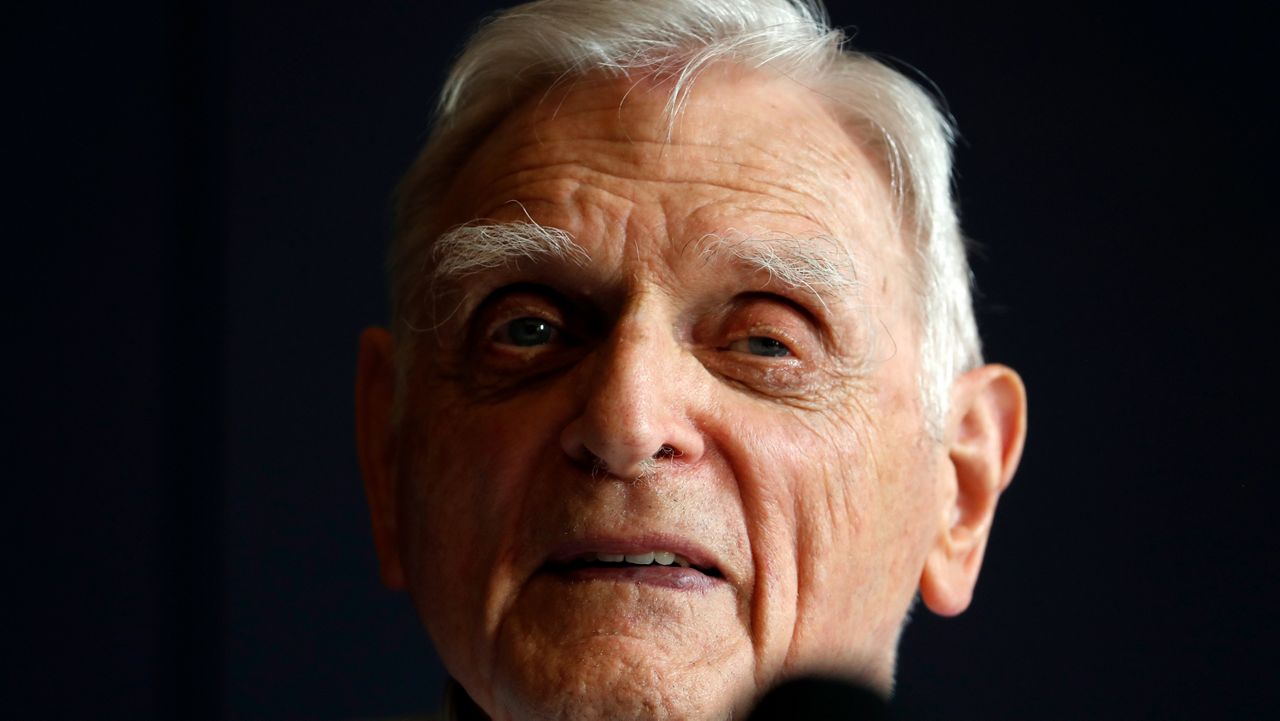AUSTIN, Texas — The University of Texas at Austin and people in technical fields around the world are mourning the loss of the father of the lithium-ion battery, John B. Goodenough, who died Sunday at age 100.
Goodenough’s legacy as an inventor ripples throughout history for the development of the technology that powers the electronics of everyday items such as laptops, cellphones and electric and hybrid vehicles.
He worked as a professor at UT in the Cockrell School of Engineering from 1986 until his death, investigating and continuing his research on battery materials and inspiring future generations of innovators.
Those familiar with his work say Goodenough’s talent was undeniable, as was his high regard for faculty and staff on campus. UT President Jay Hartzell spoke to the campus’ news outlet and gave a gist of the late inventor’s lasting mark.
“John’s legacy as a brilliant scientist is immeasurable — his discoveries improved the lives of billions of people around the world,” Hartzell said. “He was a leader at the cutting edge of scientific research throughout the many decades of his career, and he never ceased searching for innovative energy-storage solutions. John’s work and commitment to our mission are the ultimate reflection of our aspiration as Longhorns — that what starts here changes the world — and he will be greatly missed among our UT community.”
In 2019, Goodenough was awarded a Nobel Prize in chemistry for his work, making him the oldest person to receive the award.
The inventor did not have children, but leaves behind a fortune to UT with the John B. and Irene W. Goodenough Endowed Research Fund in Engineering, established in 2006 and named after his late wife.



